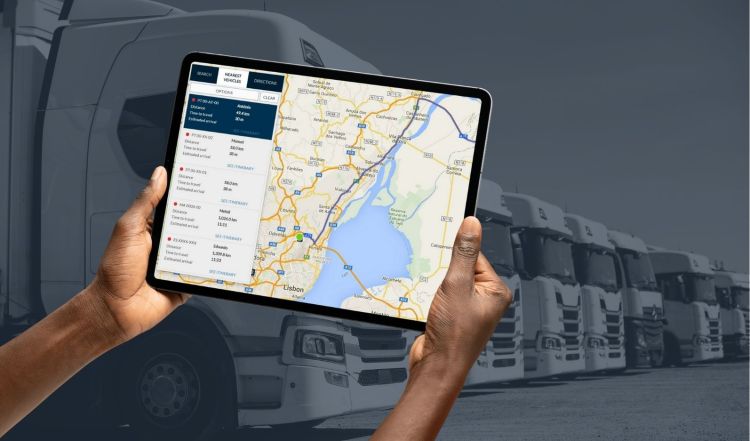Fleet Digitalization: Driving Smarter, Scalable, and Sustainable Fleet Operations
The logistics sector is increasingly transforming due to two significant trends: fleet digitalization and the transition to electric vehicles.

What is Digitalization in Logistics?
Digitalization in logistics refers to using digital technologies to improve how goods and services are planned, moved, and delivered. In fleet management, fleet digitalization involves digital fleet and tracking solutions like GPS vehicle tracking, route optimization, automated reporting, and data analytics. These digital solutions empower logistics teams to work faster, reduce errors, lower costs, and respond more effectively to changes or disruptions. With access to accurate, real-time information, companies can anticipate issues, make intelligent decisions, anticipate challenges, and provide better service across the supply chain.
Today, digital fleet management and advanced tracking solutions are central to how modern companies manage their vehicles. They enable the integration of all relevant into a single platform, providing enhanced visibility and control. The result? More flexible, responsive, and reliable fleet operations.
Electrification: Real Benefits, Real Challenges
Despite notable progress, transitioning to electric vehicles (EVs), especially for commercial fleets, still presents challenges. Limited driving range, insufficient charging infrastructure, and a shortage of electric models that meet specific business needs are key concerns. These challenges are especially relevant for companies managing long-distance transportation or daily deliveries.
Some businesses also struggle to match their electrification plans with the available local power infrastructure. In many locations, the electrical grid is not ready to support the required chargers, making coordinated action between private companies and public authorities essential.
Why Regulation Matters
Government policies are fundamental in how fast companies can transition to cleaner fleets. For example, the recent delay of the internal combustion engine ban in the UK to 2035 has provided businesses with some extra time to adapt but has also introduced uncertainty. On top of that, some regulatory questions remain unresolved, such as how electric vans under 4.25 tons will be taxed or whether tachographs will be required in those vehicles. Clear, consistent regulations are essential for companies to plan and invest in long-term fleet strategies.
People Make a Difference
Digital and electric solutions only succeed when people are entirely on board. Many companies are turning to EV ambassadors, such as drivers or team members who help promote the transition internally and encourage EV adoption. Simple steps to involve employees, such as pilot programs, targeted training, and ongoing communication, make it easier for teams to adapt, reduce resistance to change, and support the groundwork for long-term success in fleet electrification.
Fleet digitalization and decarbonization are more than just industry trends; they are essential to creating more innovative, efficient, and sustainable operations. Companies that effectively align technology with strategic objectives and team engagement will be best positioned to meet regulatory requirements and achieve long-term goals.
Now, it’s time to transform your fleet. Invest in a more intelligent, more efficient, and sustainable operation. Talk to our fleet management specialists and discover how your company can lead the change.
- Frotcom
- Fleet Digitalization
- Digital Fleet Management
- Digital Fleet and Tracking Solutions
- Electronic Fleet Management
- Enterprise Fleet Management
- Fleet Telematics
- EV Fleet Transition
- Électrification de la flotte
- Fleet compliance
- Real-time fleet monitoring
- Smart Fleet Operations
- Gestion de flotte durable
- Fleet Management Trends
- Commercial Electric Vehicles
- Technologie de flotte
- Fleet Transformation
- Sustainable Operations

